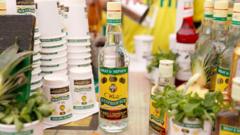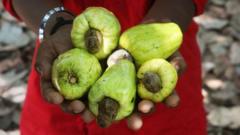The debate over what makes a rum "Jamaican" has sparked significant tension among producers on the island. At the core of this controversy lies the recent amendments to the geographical indication (GI) rules governing Jamaican rum, established initially in 2016 by Jamaica's Intellectual Property Office (JIPO). In efforts to strengthen the GI, the amendments prohibit the aging of rum outside of Jamaica.
The Spirits Pool Association (SPA), representing six of Jamaica's prominent distilleries including Appleton and Hampden Estate, advocates for these updated regulations. They argue that an enhanced GI will protect Jamaican rum against competition, particularly in major markets like the EU and the US, while also boosting its status as a premium product. The SPA contends that authentic Jamaican rum must be aged locally to preserve its uniqueness and character.
However, pushback has emerged from National Rums of Jamaica (NRJ), which oversees significant operations including Long Pond and a majority stake in Clarendon. This entity's business model, having undergone changes due to ownership by Maison Ferrand—a French spirits company—significantly relies on exporting rum in bulk and aging it abroad. The NRJ argues that the historical practice of exporting and aging rum outside of Jamaica challenges the notion that it cannot still be classified as Jamaican rum.
While the SPA stands firm, stating that genuine Jamaican rum must age on the island, NRJ remains adamant that the new rules jeopardize its operational viability, prompting them to appeal JIPO's ruling with a hearing anticipated in late April.
Legal expert Dev Gangjee emphasizes the importance of GIs, which can not only create economic advantages by allowing products to command higher prices but also reinforce production ties to specific regions, thus preserving cultural heritage. Examples of successful GIs globally include Scotch whisky and champagne.
Similar discussions are underway in Barbados, where rum producers are split over proposed GI regulations. The objector, also linked to the same ownership—Wird—argues against restrictions on overseas aging. The ongoing frictions reflect wider conversations about maintaining the integrity of local industries while navigating international market pressures.
In the meantime, the SPA hopes to secure a Protected Geographical Indication classification from the EU, contingent on the outcomes of the ongoing legal proceedings. Both sides are seeking a resolution that balances their interests, as the pride in and economic significance of rum remains a central facet of Jamaican identity.
As Jamaica grapples with these issues, local media reflect on the importance of maintaining authenticity and the cultural heritage associated with the island's rum production—an essential part of its historical narrative. The Gleaner, a national publication, supports JIPO's amendments, cautioning against the appropriation of Jamaica’s cultural products by foreign entities.



















